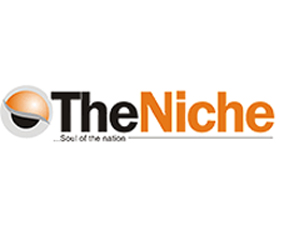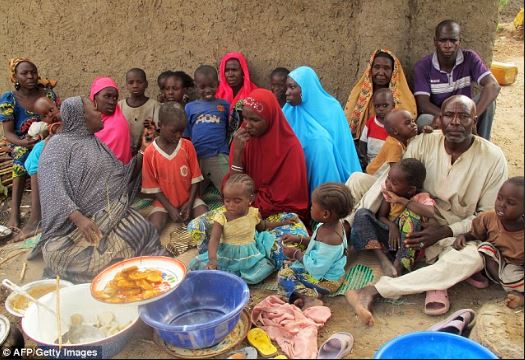Buhari excluded nearly 43m poor people; additional 7m on poverty brink
By Jeph Ajobaju, Chief Copy Editor
Some 42.69 million poor people were shut out of Abuja’s N5,000 monthly cash transfer scheme which former President Muhammadu Buhari began in 2016 to ensure all households across the country put food on the table.
The World Bank disclosed in the June 2023 edition of its Nigeria Development Update that only 19.4 per cent of Nigerians benefitted from the programme.
With an estimated population of 207.25 million (based on World Bank estimates), this meant only about 40.21 million received cash transfer.
The Bank noted about 40 per cent of Nigerians (82.9 million) lived on less than the national poverty minimum amount in 2022.
“The majority of Nigerians are either poor or economically insecure, just one shock away from falling into poverty,” the report said.
“About 40 per cent of Nigerians – 82.9 million people – lived on less than the national poverty line in 2018/19.13. An additional one quarter of the population – some 52.6 million people – were economically insecure, at high risk of falling into poverty.
“The overall poverty situation since then is unlikely to have improved given that GDP per capita has declined since 2019.”
_________________________________________________________________
Related articles:
Catholic Bishop urges Tinubu to distribute N8,000 palliative fairly
Rights activists decry Tinubu’s N70b bribe for lawmakers as subsidy removal palliative
Tinubu’s palliative will be looted like they did COVID-19 intervention, says Atiku
__________________________________________________________________
7.1m more heading into poverty
Going by the poverty rate, it meant 42.69 million poor people did not benefit from the cash transfer programmme, per reporting by The PUNCH.
The World Bank also noted an additional four million Nigerians became poor between January and May 2023 due to rising inflation.
It has projected that, with fuel subsidy removal, about 7.1 million poor Nigerians would become poorer if Abuja fails to provide palliatives for them.
The Bank stressed the Nigerian government is not spending enough to address poverty and protect citizens.
“Despite being exposed to frequent recent shocks, the majority of the population lacks protection to adequately cope with shocks financially.
“In 2021, Nigeria spent only 0.7 percent of its GDP on social safety nets. This is much lower than the average for Sub Saharan Africa and lower-middle-income countries of 1.2 percent and the global average of 1.5 percent,” the report added.
“Consequently, only 19.4 per cent of Nigerians benefitted from any safety nets programme, compared with 25 per cent regionally and 41 per cent globally. Even among those covered, benefit levels remain insufficient to keep households out of poverty.
“Thus, Nigeria needs to rapidly and comprehensively expand the coverage and adequacy of its social protection programmes to allow households to cope better with inevitable future shocks.
“Nigeria has the capacity and the infrastructure to deliver immediate assistance at scale. In recent years, Nigeria has invested in building a robust safety nets delivery system that can provide immediate assistance to a large number of households.
“This includes the development of social registries that can be used to select households for support and a robust payment system that can deliver cash transfers in a safe, secure, and reliable manner.”
Call for expansion
There are calls for the expansion of the social safety net to cover more poor people.
The World Bank stressed the “building on earlier progress in expanding social protection to the poor and vulnerable, the government can leverage the phasing out of the petrol subsidy to establish a new social compact with Nigerians.
“Establishing a redistribution mechanism that uses a portion of the fiscal savings to protect lower-income households could minimise the negative impact on consumer welfare while still yielding a large net gain in government revenues.
“To build public support for phasing out the subsidy, and as part of a wider process of building trust, the government could propose a compact with Nigerian citizens that directly links the phased-out subsidy to compensatory cash transfers.
“It could publicize this compact (cash transfer amounts, eligibility criteria, transfer mechanisms, etc.), enabling the media and civil society to monitor compliance.”
Need for transparency, accessibility
Experts agree with the World Bank in not just expanding the coverage but making it more transparent.
Cowry Asset Management Managing Director Johnson Chukwu said the government needs to be transparent and make the database accessible to everyone for easy confirmation.
“The government must have a register, and that register should be in public domain. It should be broken into states, local governments, districts, so that people can actually go to that register and confirm the genuineness of the people in the register,” he advocated.
“This way, you have genuine people who are in need in that register, So, it is just about the level of transparency and openness that the government has regarding the register.”
Former National Accountants of Nigeria President Sam Nzekwe also stressed the need for accurate data to ensure genuine poor people are the major beneficiaries.
“It is very important that we have open data,” he said.


